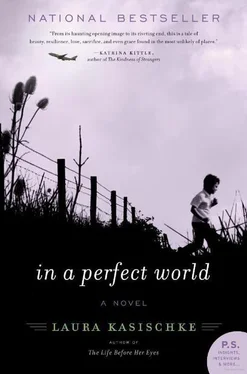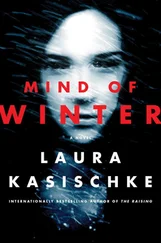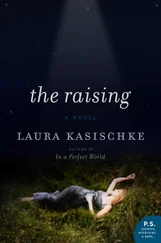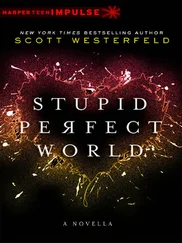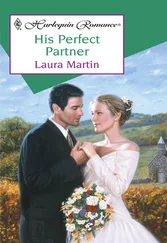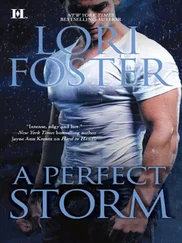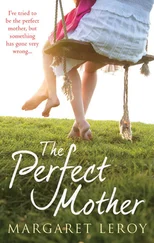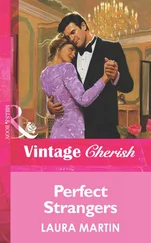That week, Paul and Bobby repaired the chimney, too, and swept out the fireplace.
They shooed the swallows out and put a screen over the chimney so the birds couldn’t come back.
The birds circled the roof for hours afterward, but finally they flew off for good, built their nest somewhere else, it seemed. Jiselle knew their departure was a good thing, although, after their eviction, she looked up, watched them circle in gray and feathered confusion, and felt sorry that they couldn’t stay. “You don’t think,” she said to Paul, watching beside her, “that it could be…you know, bad luck, to send them away?”
Paul shook his head. He said, “No, Jiselle. Try not to think like that. When these superstitions start, and start being taken for truth, it’s a kind of final bell tolling for civilization. We can’t start believing in luck.”
Jiselle was playing chess after midnight with Sam when Mrs. Schmidt came out of Sara’s bedroom, held up a finger, and said, “Listen.”
In the candlelight, she looked more than ever like a wraith. Her white nightgown was full of shadows, and her face was obscured by darkness. Jiselle assumed at first that she was in one of her sleepwalking states: Sometimes Mrs. Schmidt would wake from dreams and wander out of Sara’s room with something important to say, unable to recall what it was.
But Sam and Jiselle stopped their game to listen anyway.
Sam heard them first, and his eyes widened, and then Jiselle heard them, too.
At first, a distant yelp.
A womanish moan, far away, singular.
But then came a whole chorus of bawling and ululating cries, whines, plaintive and angry at the same time—and as if she were the first person to hear such a sound, as if she were a woman in a cave, a woman born before language, listening, Jiselle felt the fine blond hairs on her limbs rising away from her flesh in a feathery wave of foreboding, traveling up her body, her neck, and she stood and reached out instinctively for Sam, pulling him to her.
“Who is that?” Sam asked.
“We don’t know,” Jiselle said.
When Paul and Bobby arrived in the morning, Paul told her they had heard them, too, from their own house.
“Were they coyotes?” Jiselle asked. “Wolves?”
Paul Temple said no, he didn’t think so. He believed they might simply be the hungry pets of St. Sophia residents who’d died or fled without their dogs.
Jiselle thought then of the first day that Mark had driven her into St. Sophia—the brick façades of the buildings downtown, the little boy on his red bicycle, the shining fire engine outside the station.
ST. SOPHIA—AMERICA’S HOMETOWN.
But like so many towns in America, St. Sophia was no one’s hometown. Their families were elsewhere, as were their jobs. It looked like a town, but in the months Jiselle had lived there, even after the plague began, the Temples were the only people she’d gotten to know, and they were not from St. Sophia, either.
When trouble came here, people went somewhere else.
They went back.
They left their schools behind, their shining fire engine, their quaint downtown, their pets.
St. Sophia was just a town on a list given to people who needed a town, a town that could just as easily be crossed off the list and cease to exist.
After that, Jiselle heard them every night, and no matter how deeply asleep she was, the cries always woke her with her heart pounding and sent her hurrying to the doorway of Sam’s room to check on him, and then past the girls’ and Mrs. Schmidt’s rooms, to see that they were in their beds, and then to the window, to stare into the darkness draped over the ravine, imagining those pets, lost and changed, calling out for the ones who had abandoned them.
That week, Paul and Bobby stayed each night for dinner. Jiselle would make whatever she could from the cans and boxes she had. If the electricity was out, she would cook on the grill. Sometimes Diane Schmidt would sit with them, and sometimes Jiselle had to take a plate to her room or out to the yard, where she might be sitting beside Beatrice, watching the sun set. After dinner, Paul and Jiselle sat on the deck with their cups of tea. They said nothing about Mark, who had not called, but Paul confided in her that when Tara had not come back from Virginia, he’d felt mostly relieved. There had been trouble between them for years, but the Phoenix flu and the power outages had forced some things to the surface—like the fact that he and Tara had nothing in common, except for Bobby, who was getting older, getting on with his life.
He said that after Tara called to tell him she was going to stay longer, didn’t know when she’d be back, he couldn’t even find it in himself to feel surprised.
“She’d been ready to go for a long time.”
Jiselle thought then of Tara Temple in the line at the bank that day but said nothing.
“And all this hocus-pocus stuff she got into. I couldn’t stomach it. You know, during the Black Plague, these charlatans used to go door to door selling Abracadabras and charms and knots. People would give their last crust of bread for some worthless amulet. She wanted me to believe in her positive thinking and read her books, and I couldn’t. I just couldn’t.”
Bobby was the one who was grief-stricken. “He misses his mother, and he’s worried about her, of course. He’s afraid she’ll get sick in Virginia, and with no mail service and if the phone lines go completely—the way the electricity’s been going—how will we ever know?”
Jiselle nodded and bit her lip.
“Shit happens,” Paul said. “Look at Schmidt.” He nodded in the direction of Brad and Diane’s house, which had been covered by the county in yards and yards of yellow tape marked BIOHAZARD. Brad Schmidt had been gone only one week, and already the hedge between their houses had grown into a tangled thicket, a wild wall. Fat pink flowers bloomed on a few of the branches.
“Jesus Christ,” Sara said. “It’s a flowering hedge. Is that why he kept cutting it up? He was trying to keep the flowers from blooming?”
It seemed like a minor problem compared to the many other problems, but how could they simply watch her die? There was no more Fowl Feed Deluxe left in the can, and Beatrice would touch nothing else.
“Jiselle?” Sam said. “Can we go to the pet store? Please?”
He stood at the sliding glass doors shivering in the damp morning breeze, his arms wrapped around his stomach. He was wearing a long-sleeved shirt, but he’d grown so much in the last few months that the sleeves ended between his elbows and his wrists. Soon, if they couldn’t go shopping, he would look like Huck Finn, a boy grown out of homespun clothes, barefoot.
“We have to get some goose food,” he said. He looked at Jiselle. His eyes were wide and beseeching. “What if she starves?”
Already, at the end of May, when she and Sam had last made a special trip to the pet store and bought the last bag of Fowl Feed Deluxe off the shelf, there had not been any of the usual things. No gerbils. No fish. No rabbits snuffling around in their cages. Certainly no parakeets or parrots. The pet shop owner had told them he thought he was going to close down until normal shipments could resume. That couldn’t be too far off, he’d said hopefully. Truckers would have to be allowed to cross state lines before too long, and if the economy improved, it would sway the tide of world opinion in the direction of resumed trade.
Jiselle was trying to knock the last few ashes out of the can of goose feed. She stepped inside, shaking the rain off her hair. Her hair, which she’d always kept long, had grown several inches in the months without a trip to the salon. Now it nearly reached her waist.
Читать дальше
